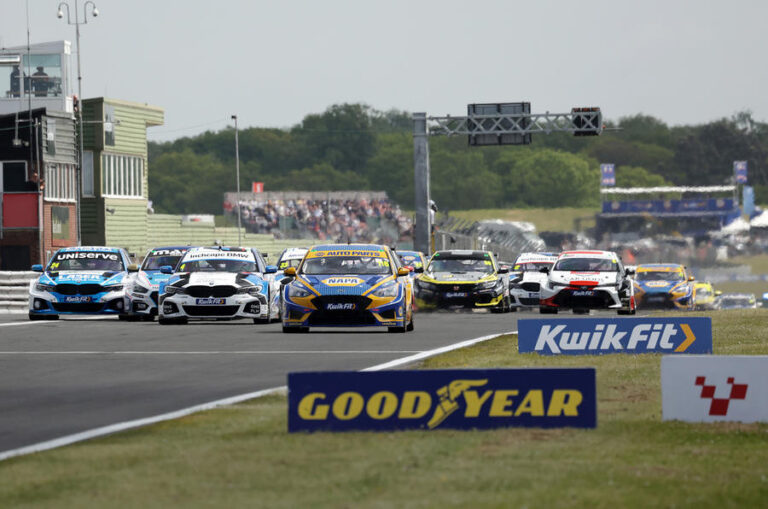The BTCC’s 2024 season will be its 67th
As this year’s tin-top championship begins, boss Alan Gow talks new developments on- and off-track
Alan Gow, boss of the hugely successful Kwik Fit British Touring Car Championship for all but three of the past 34 seasons, is the personification of a decisive leader.
He spends most of his time making clear, quick decisions aimed at improving what is widely acknowledged to be the world’s best car competition of its kind. For decades, his authority has been every bit as great as Bernie Ecclestone’s was in his Formula 1 heyday.
Not that there are many other similarities between Gow and Ecclestone. Bernie was small, enigmatic and scary; Gow is tall and laconic, an Australian immigrant who arrived from a successful Melbourne-based motorsport career in 1990. He thrives on wisecracks and colourful language, and for all his word-is-law authority, he is a remarkably modest man.
“People think all the big decisions come from me,” he says. “But they actually come from me listening. I don’t have a sole franchise on good ideas, so I surround myself with people with interesting opinions, some a lot smarter than I am. So you listen, you sort wheat from chaff, and usually you find the truth somewhere in the middle. I’m a magpie. I’ll pinch anyone’s good idea if I think it will improve the BTCC.”
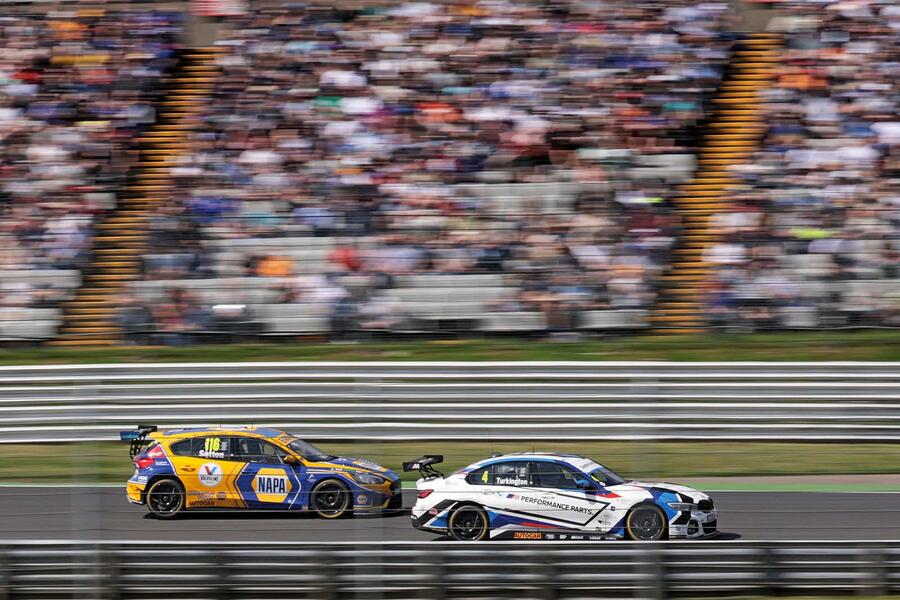
Typically, Gow has a suite of new ideas every year, and it’s the same for 2024. They are designed to sharpen the competition and the spectacle. “If you don’t have great racing,” he says, “you don’t have anything.”
This year will be the third for the hybrid powertrains, a world-first he cooked up during lockdown with the help of Cosworth. After one season to find the bugs and a second to iron them out, he’s convinced 2024 will be a great year for hybrids, making the prospect of one driver scoring runaway championship wins (already tough) almost impossible.
“This year we’re doubling the boost available through the driver’s push-to-pass button,” he explains. “It’s a combined turbo and hybrid-electric boost, worth about 80bhp. At the first race this season everyone will get 15 seconds of boost per lap. But as soon as a driver wins a race his boost will fall to just one second, and there are graduated reductions down to 10th place. That will really change things.”
Gow shrugs off critics who point out that the World Rally Championship launched a strain of hybrid cars and has since binned them.
“That was completely different,” he says shortly. “Those cars had big batteries – we don’t – so they were heavy. There were potential safety issues, too, and all the tackle cost £150k per car. That’s not us. Our cars have small, low-voltage batteries. Besides, we have never learned anything for touring cars from rallying…”
Gow says there’s an option to increase the boost again for next year, but he doubts they will do it. “You don’t want the guy in front to be a sitting duck,” he says. “A driver needs a chance to defend. We have done a lot of testing with top drivers, and they came away seeing the potential and saying it was great.”
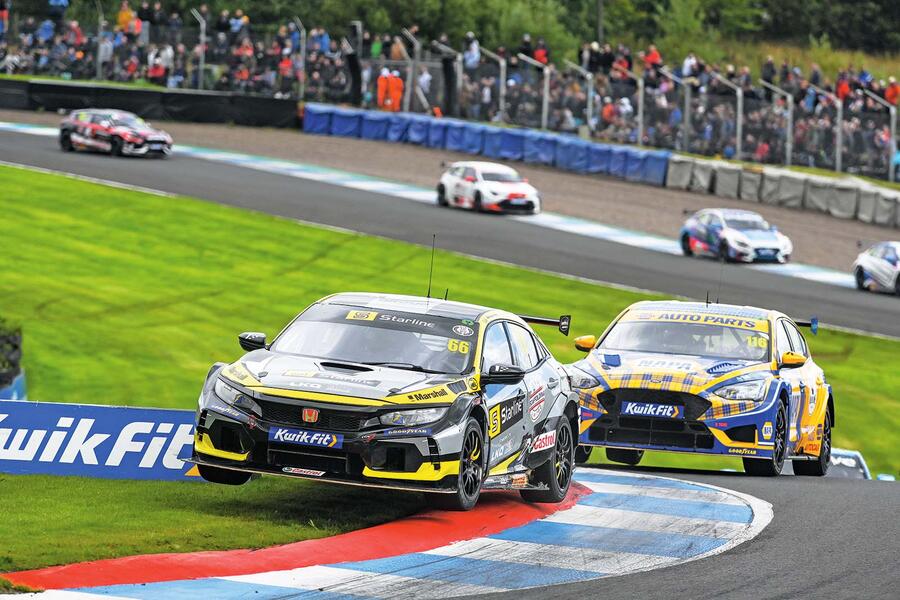
Another big change for this year is the way qualifying is organised, using an idea pinched from the Indycar series, which Gow loves. “We will have a half-hour knock-out quali, divided into three 10-minute sessions,” he says.
“Half the field will do the first 10 minutes – a mix of the fast and slow cars – then the rest will do the second session. Everyone will have to get stuck in straight away; there will be no chance to drone around trying to improve the car. Then the top half dozen – the Quick Six, we’re calling them – will run off in the third 10-minute session. It will all make a great spectacle. Some drivers might lose out, but I don’t care. That’s racing.”
For 2024, the BTCC is also bringing back option tyres, because drivers love the opportunity for extra speed and it introduces a bit more jeopardy. But Gow is also cooking an evil refinement into the plan. “If you win,” he says, “you’ll have to do the next race on the hardest tyre. That will make a back-to-back win very difficult. The great thing is it’s something a team won’t be able to manipulate: who would sacrifice a race win so he can be on a softer tyre next time?”
Away from the track, the BTCC is taking a gigantic publicity and marketing leap by making every one of the season’s 30 races – over 10 race weekends – available to the vast global audience of TikTok, the Chinese-based social media phenomenon. It’s a move so full of promise that even Gow hesitates to quantify it, beyond enthusiastically labelling it “a game-changer”.
Happily, global social media coverage won’t interrupt the “dream” deal the BTCC already has with ITV to televise eight straight hours of action every race day. Viewers can see all three BTCC races, plus support events, grid walks and driver interviews, although nowadays they rarely watch the programme right through, preferring catch-up or highlights shows and accessing races via smartphone or tablet.
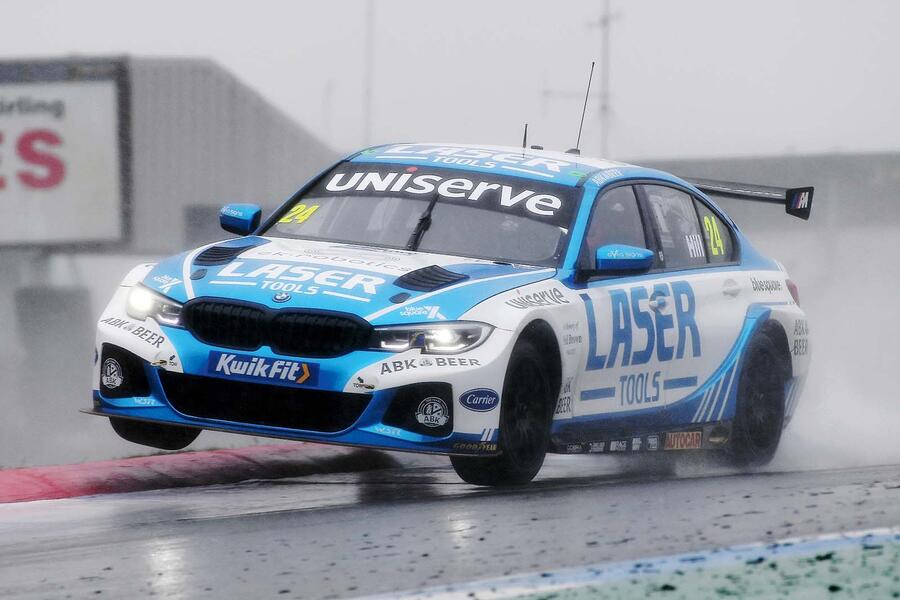
Is this an end to the BTCC’s 2024 innovation? Not a bit. The series sets off this year on a thorough and detailed sustainability plan aimed at achieving full carbon neutrality in time to meet national targets. Gow is acutely aware that the BTCC – and motorsport – needs to care for the environment in order to have a secure future.
“We could achieve carbon neutrality easily enough if we were prepared to plant a few trees in the Amazon, but that strikes me as bullshit, a real cop-out,” he says.
“We retained a team of specialists for five months to draw up a sustainability road map just for us. It entails changing how we get to and from circuits, it requires us to use 100% sustainable fuels [due by 2026], it affects the materials we use to build the cars and involves all relevant forms of recycling and upcycling. We have a clear timeline; we now know what we have to do and when. Everyone’s signed up to it and we’re very proud of it.”
All of this is designed to work with the BTCC’s next round of car and race regulation changes, due in 2027. They are still being framed, so Gow doesn’t go into detail. Hybrid powertrains may or may not stay, depending on the supply and effectiveness of sustainable fuels, but sustainability will be the priority, along with more moves to cut costs.
Right now, the BTCC’s enthusiasm for hybridisation is vital to two major entrants, Toyota and BMW, which each run four cars and are quite positive that they wouldn’t if they couldn’t be hybrids. Those are the cars both companies currently want to sell.
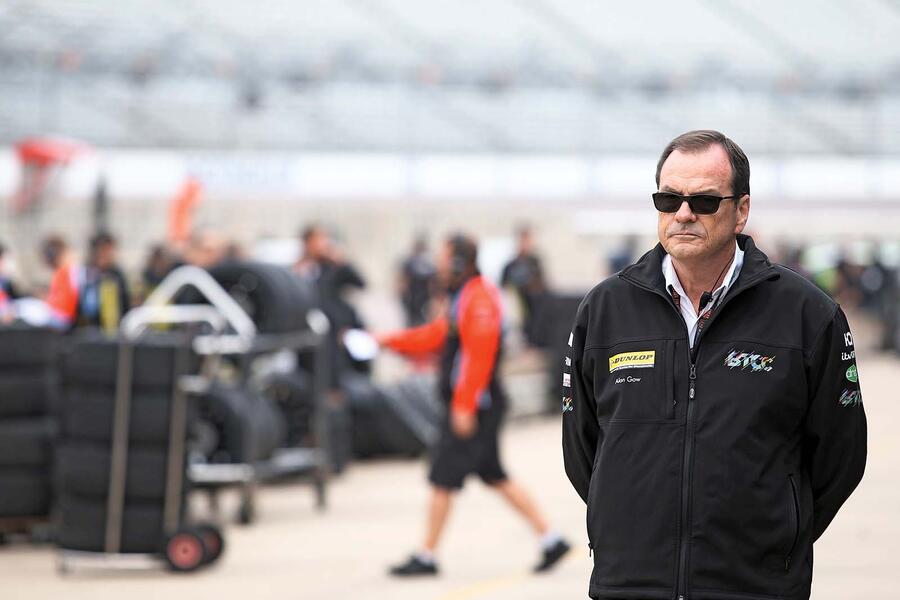
Talking costs, I ask Gow about well-publicised previous moves. Didn’t they work?
“They did,” he says. “But no one’s ever happy. Even so, we’re never going to get into a race to the bottom on cost. BTCC is the best championship in the country and it provides a logical destination for some of the best drivers we have. So it’s always going to cost more to race in ours than others.”
All of which goes to illustrate why the clarity and speed of Gow’s one-voice decision-making matters so much. “I make mistakes like anyone else,” he admits, “but when things are run by committee, they have to offer fixes next year. I can do it next week.
“Not everyone likes the decisions I make; it would be weird if they did. But I get respect for making them. People know I don’t have hidden agendas. When we have our team meetings, I remind people that I’m the only bloke in the room with an unbiased opinion. I only care about the best interests of the BTCC. But I listen – and any decision I make will come out of that.”


